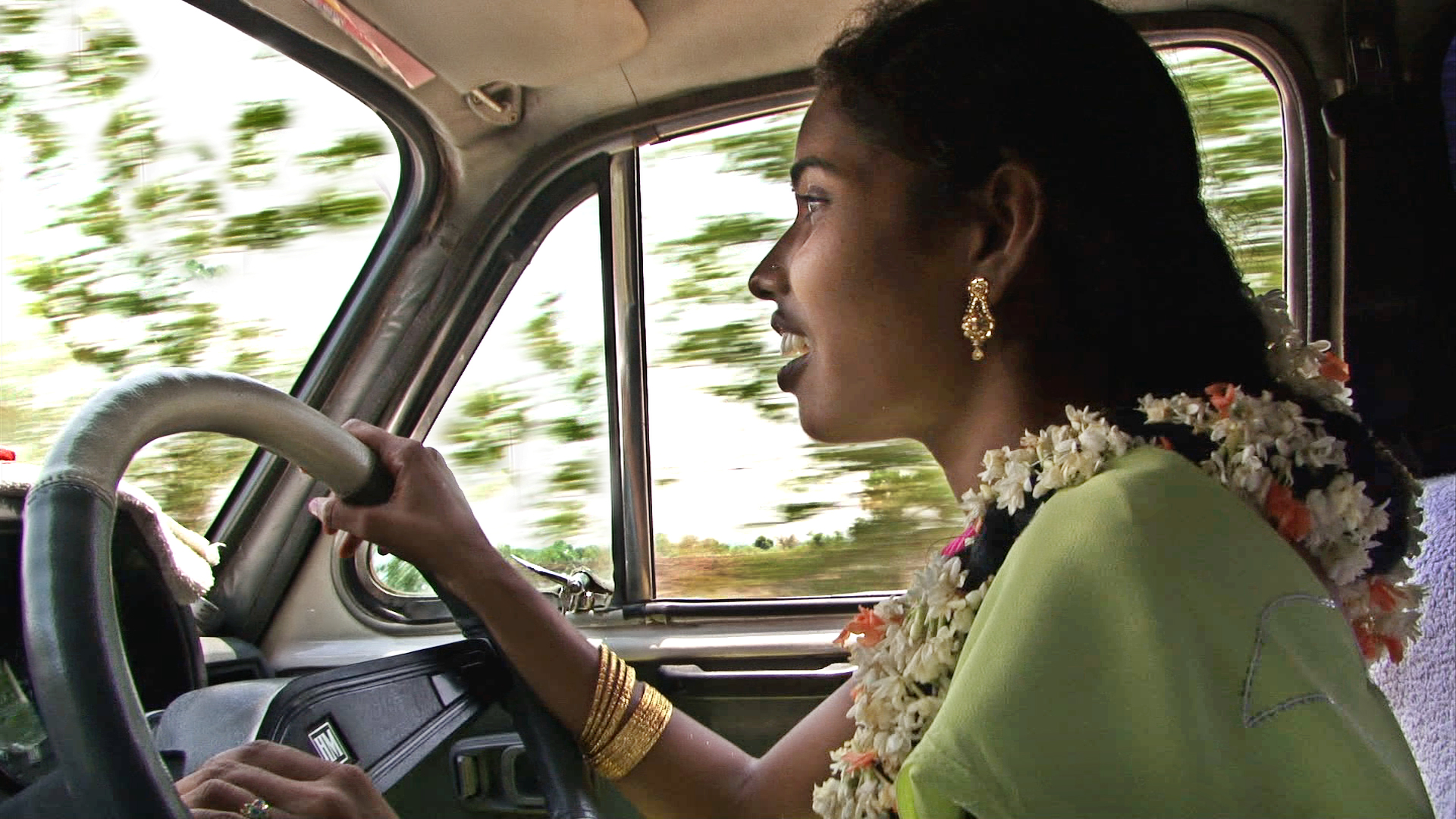Our Reality in Others' Eyes
Driving Miss Selvi directed by Elisa Paloschi

Distance can lend a new reality to a film-maker’s view. So many fine films have been made by directors abroad on India and its problems, documentaries of strength and courage here. Eyes other than our own find and exalt these stories – another perspective, a keener poignancy.
Two Academy Awards and many short listed films figure in the record of recent times: set in India or with Indian themes. In 2005, Zana Briski and Ross Kauffman’s Born into Brothels: Calcutta's Red Light Kids won the Oscar for Best Documentary. Widely acclaimed thereafter, the film is about the children of commercial sex workers in Kolkata’s famed Sonagachi. Anand then 2011 was special. Smile Pinki, a 39-film directed by Emmy-nominated producer Megan Mylan won the Oscar of the Best Short Documentary. Set in Varanasi, in Hindi and Bhojpuri, it tells of six-year-old Pinky from Mirzapur who faces social ostracism and cannot attend school because of a cleft palate. She meets Pankaj, a social worker, who ensures that she gets free surgery. Pinki attended the Oscars, which shows the pint-sized protagonist yawning when seated among the glitzy gathering, and later nimbly climbing on stage to a huge ovation.
Another film in 2011 shortlisted in the same category was The Final Inch by Irene Taylor Brodsky and Tom Grant. It dealt with Muhammad Gulzar's battle against polio. The story highlights India’s efforts to eradicate polio.
The Toronto International Film festival in particular looks out for films on social issues. In 2010, it featured Sarah McCarthy’s heart-wrenching Sound of Mumbai: A Musical, on the city’s slum kids recruited to provide a performance of the Rogers & Hammerstein score alongside the Bombay Chamber Orchestra. The same year, Toronto World premiered Kim Longinotto’s powerful Pink Saris, on Sampat Pal Devi, the leader of the 'Pink Gang.' She brings her own brand of justice to the streets of Uttar Pradesh, combating violence against women.
In 2013, the Berlinale’s Panorama Audience Award went to the same director’s poignant bio-pic, Salma. A woman defies her village in Chennai to become a legend as activist, politician and poet.
In 2014, one more human interest story is biding its time to take India to world screens. This is Driving Miss Selvi directed by Canada-based Elisa Paloschi. Her inspiring film tells of courage and spirit.
Set in Karnataka, South India, Driving With Selvi follows the brave Selvi through a nine-year transformation as she discovers her personal power, helped by a citizen group . At age 27, Selvi has endured many hardships. An impoverished child, she was a victim of the society she inherited. Forced to marry when 14, she endured abuse, exploitation and discrimination. Instead of giving in, Selvi decided to end her abusive marriage.
She starts her own taxi company and becomes Karnataka’s first female taxi driver, working for a medical outreach organisation, getting her license to drive a passenger bus, becoming a wife again and eventually a mother. It is her unwavering spirit and character that push her through to finding a second chance in life and love.
Through Selvi’s eyes, the audience is taken on an intimate journey, perhaps even a familiar one, of healing, overcoming obstacles and fulfilling a dream.
Meeting the velvet-skinned, beaming Selvi at a documentary pitching event in Mumbai in early in 2014, winning hearts with her stunning sparkling smile, an onlooker says that if she wanted another career it could be as a model for toothpaste. When asked if she ever thought of redressal of past injustice Selvi, now 27, replies with maturity and grace, “That is all over. I am happy now”.
Elisa Paloschi spent ten years on the inspirational Driving With Selvi. It is currently at fine cut stage and should be ready late 2014 / early 2015. Elisa is currently raising completion funds through the Indiegogo crowd-funding platform: http://igg.me/at/drivingwithselvi.



